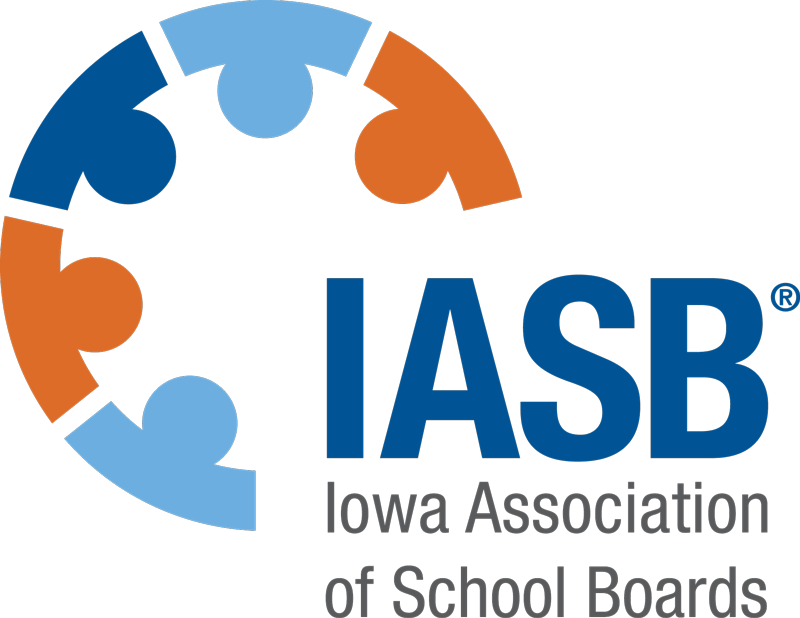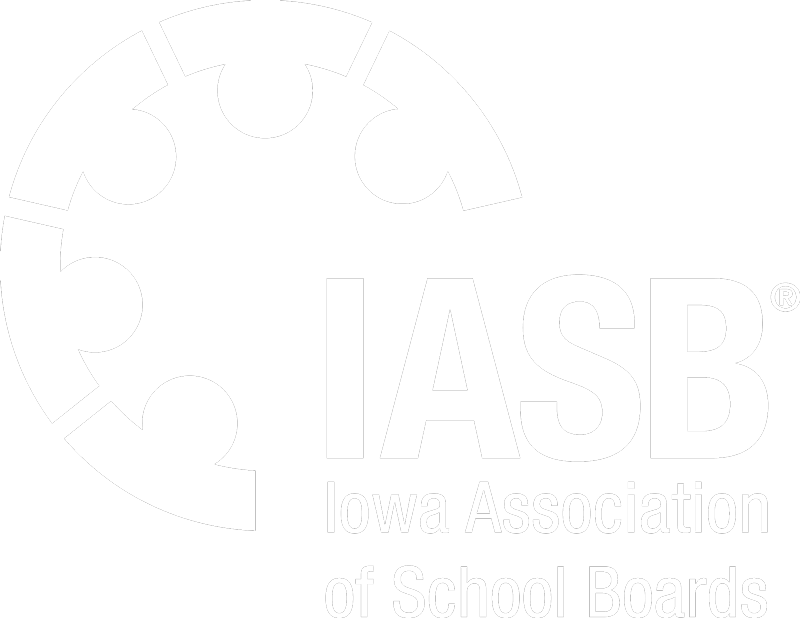Appropriations & Funding
HF 1039—Rebuild Iowa Infrastructure Fund (RIIF) Appropriations: This budget includes money for projects at many state departments. It allocates $600,000 from the Technology Reinvestment Fund to the Department of Education for continued development and implementation of an educational data warehouse that can be used by teachers, parents, school district administrators, area education agency staff, and DE staff.
The bill passed the Senate by a vote of 43-0 and passed the House by a vote of 58-24. Governor Reynolds signed the bill into law on June 11, 2025.
SF 167—Supplemental State Aid (SSA): The legislature agreed to a final deal on supplemental state aid (SSA), which sets the rate at 2%. This is $62.7 million in new money and $157 per pupil, which makes 157 districts eligible for the budget guarantee. In addition to new money through SSA, the legislature also provided funding for:
5% increase in transportation equity, which will provide extra funding for transportation to 197 districts.
$5 toward district cost per pupil equity. The legislature has not funded district cost per pupil (DCPP) equalization for several years, so this investment would decrease the maximum difference between DCPP and state cost per pupil from $140 to $135. The goal is to erase that differential over time.
Increasing the operational sharing cap from 21 to 25. This would allow districts to share more positions and still receive extra funding.
IASB is registered in support of the bill. While we acknowledge that 2% is not enough for districts to meet rising costs, the added funding through transportation equity, DCPP, and increased operational sharing opportunities are welcome benefits for districts. The bill passed the Senate by a vote of 32-15 and passed the House by a vote of 60-36. Governor Reynolds signed the bill into law on May 19, 2025.
SF 647—Education Appropriations: The bill provides a total general fund appropriation of $1.033 billion for FY 2026. It is an overall Increase of $14.1 million (1.4%) compared to FY 2025. Additionally, the bill provides overall FY 2026 General Fund appropriations to the Department of Education (including K-12 programs and Community Colleges) totaling $451.4 million, an increase of $8.5 million (1.9%). Major changes include:
- An increase of $151,600 million (2.2%) for the Department of Education Administration.
- An increase of $300,00 (3.1%) for Jobs for America’s Grads (IJAG).
- An increase of $7.5 million (3.2%) for Community College General Aid.
- An increase of $342,391 (2.9%) for the Iowa School for the Deaf.
- An increase of $98,278 (2.0%) for Education Services for the Blind and Visually Impaired.
- A reduction of $500,000 (100.0%) for Therapeutic Classroom Transportation Claims.
- A new appropriation of $265,000 for the Teach Iowa Job Site.
- A reduction of $5.0 million (5.0%) for the Special Education Division. An additional $5.0 million was appropriated from the Sports Wager Fund.
- An increase of $265,000 to the Teach Iowa Scholars Program for loan repayment or student loan repayment.
- A new appropriation of $8.0 million for the Health Care Professional Incentive Program. This appropriation provides the funding for a new incentive program outlined HF 972, which discontinues five different loan repayment programs, and funds will be redirected to this new program.
- An increase of $1.1 million (2.0%) to the standing appropriation for the Tuition Grant Program.
IASB is registered undecided. The bill passed the Senate by a vote of 34-14 and passed the House by a vote of 59-32. Governor Reynolds signed the bill into law on June 11, 2025.
SF 659—Standing Appropriations: This bill encompasses many areas, but there are a few items of interest to school districts and public education:
State aid for the Instructional Support Program is eliminated for FY 2026, a legislative decision that has been maintained annually since FY 2011.
Maintained $32.5 million in AEA state aid cuts. State aid cuts impact the state aid portion of AEA-related special education funding and will impact the district’s portion of the AEA-related special education funding. In previous years, this funding has been allocated to the AEAs. Starting in FY 2026, districts are required to contract with an AEA for 90% of the funding while keeping 10% for special education funding at the district. More information can be found here.
A transfer of $21.9 million from the Economic Emergency Fund to the state general fund will replace an equivalent amount of general fund dollars for state aid.
Several policy items were also included in the standings bill this year:
Student Abuse by School Employees: There is language from a bill passed unanimously by the House earlier this session on student abuse by school employees. It moves investigations of alleged student abuse by school employees to the Department of Health and Human Services (HHS). Student abuse is defined in the bill as a nonaccidental injury suffered by the student because of actions or inaction by the employee, commission of a sexual offense, or an action by the employee that encourages a student to engage in prostitution.
HHS must notify the school district and the Board of Educational Examiners (BOEE) if they receive a complaint that constitutes an allegation of student abuse by a school employee. Districts must then place the employee on administrative leave and prohibit them from entering school property until the investigation is completed.
After receiving a complaint, HHS must:
Start an investigation within 24 hours.
Complete the investigation within 30 business days.
Upon completion, submit a report to the school district and the BOEE.
HHS, in consultation with the Department of Education, will adopt rules to implement the bill, including investigation processes and procedures.
School districts must terminate an employee if an HHS investigation determines they committed student abuse. HHS and DE will develop a model policy for handling investigations.
Modified Supplemental Amount for Large Open Enrollment Districts: Districts with more than 45% of students open enrolled in can go to the School Budget Review Committee (SBRC) for a modified supplemental amount (MSA) to grant them more spending authority. This was passed last year, but only allowed for one year, so this allows districts to apply in future budget years, as well. Districts that opt to pursue this MSA are not allowed to raise their combined tax rate in the budget year following the approval of the MSA. It also strikes language that allowed the TSS dollars to follow the student.
IASB is registered undecided on the bill. It passed the Senate by a vote of 28-11 and passed the House by a vote of 78-3. Governor Reynolds signed the bill into law on June 11, 2025.
SF 660—Sports Wagering Fund Appropriations: This bill appropriates $14 million to school districts for education support personnel compensation for the 2025-26 school year. This funding level is unchanged from the previous year, and distribution will be based on certified enrollment. This is a one-time appropriation and can be used for any non-salaried staff.
Additionally, the bill appropriates $5 million to the Department of Education for the Division of Special Education, bringing the full appropriation to this division to $10 million, including money in the education budget.
IASB is registered in support of the bill. We appreciate the additional funding for non-salaried support staff but would prefer it to be an ongoing appropriation rather than one-time money. The bill passed the Senate by a vote of 39-0 and passed the House by a vote of 80-2. Governor Reynolds signed the bill into law on June 11, 2025.
Standing Appropriations—Not Specified in Budget Bills
These are appropriations made each year that don’t require legislative action, so they aren’t found in budget bills.
Charter Schools
An estimated increase of $14.5 million to the standing appropriation for charter enrollment. This increase is calculated by the Department of Education (DE) using anticipated enrollment figures provided by existing and new charter schools. This standing appropriation specifies that the DE must pay the charter school a sum equal to the regular program state cost per pupil for the budget year plus the teacher leadership supplement state cost per pupil, the professional development supplement state cost per pupil, and the early intervention supplement state cost per pupil for the budget year, plus any moneys that would be due to the student’s school district of residence as a result of non-English-speaking weighting for the budget year, multiplied by the state cost per pupil for the budget year, when a student enrolls in a charter school. The Legislative Services Agency publishes a helpful Budget Brief on the topic.
Education Savings Accounts (ESA)
An estimated increase of $96.8 million for ESAs, due to the final phase-in of income eligibility requirements. In FY 2026, all K-12 students attending accredited non-public schools are eligible for ESAs, regardless of family income. The Legislative Services Agency provides a Budget Brief with more information on eligibility requirements.
15.3.2025.8

